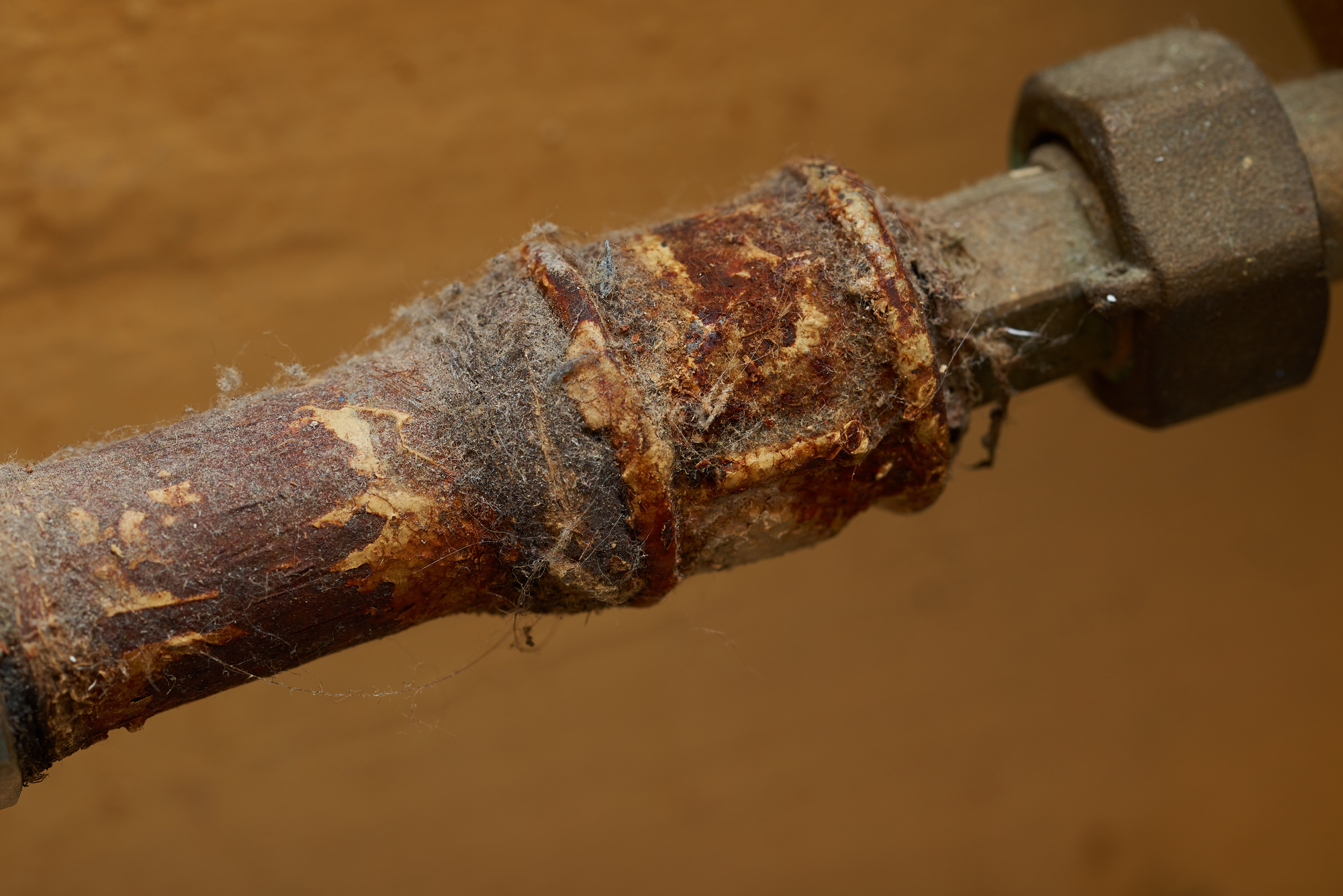Rusty Pipes: Common Causes and Solutions
Although water pressure has dropped and spraying and showering doesn’t feel like it used to, that doesn’t mean you have to panic. If your water pipes are rusty, there are a few simple causes and solutions you can try with no complex tools needed.
Rusty pipes at home aren’t always in need of immediate repair. But what does it mean if water from your faucet is rusty?
Keep reading to learn when you need to call a plumber and when you can tackle this at-home repair by yourself.
Contents
What Causes Pipe Corrosion?
Pipe corrosion occurs when metal pipes come in contact with oxygen and water, leading to rust formation. Steel pipe rust is the most common type of corrosion in residential pipes. Several factors can contribute to pipe corrosion, including:
Pipes Age
The age of your pipes is a key factor in determining their condition. Older pipes may be more susceptible to corrosion and leaks, especially if they have not been properly maintained over the years.
Water Quality
Water quality can also play a role in the lifespan of your pipes. High mineral levels and low pH levels can contribute to corrosion and buildup inside pipes, leading to reduced efficiency and potentially costly repairs.
Pipe Material
The material of your pipes can also affect their lifespan and susceptibility to corrosion. Steel pipes, for example, are more prone to rust than copper or plastic pipes.
Environmental Factors
Environmental factors can also impact the condition of your pipes. Extreme temperatures, exposure to harsh chemicals, and soil movement can all contribute to pipe damage and deterioration over time.
How Can You Tell if Your Pipes Are Rusty?
One way to check if your pipes are rusty is to examine the water that comes out of your faucets. If you notice a reddish-brown tint to the water, your pipes are likely corroded and rust is present. You can also fill a clear glass with water and hold it up to the light to check for discoloration.
Another sign of rusty pipes is a metallic or unpleasant taste and odor in your water. This can be caused by the presence of iron and other metals in the rust that has built up inside your pipes.
In addition to discoloration and strange tastes or odors, you may also notice low water pressure in your home. Corroded pipes can restrict the flow of water, leading to decreased water pressure.
If you have any concerns about the state of your pipes, it is always a good idea to consult with a licensed plumber. They can perform a thorough inspection of your plumbing system and identify any issues that need to be addressed.
Several Solutions to Fix the Problem
If your pipes are already rusty, there are several solutions to fix the problem, including pipe cleaning, pipe lining, and pipe replacement. Professional pipe cleaning can remove rust and other buildups from your pipes, while a pipe lining service can install a protective coating on the inside of your pipes to prevent further corrosion. If your pipes are severely corroded, replacement may be the best option to ensure the safety and efficiency of your plumbing system.
Properly Dealing With Rusty Pipes
In conclusion, rusty pipes are a common problem in residential plumbing systems, but they can be prevented or fixed with proper maintenance and care. If you notice signs of corrosion in your pipes, it is important to take action to prevent further damage and ensure the safety and quality of your water.
If you find this article helpful, check out our blog for more.

